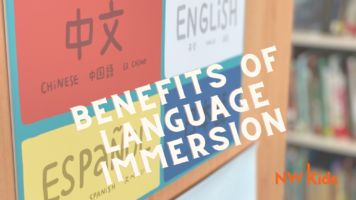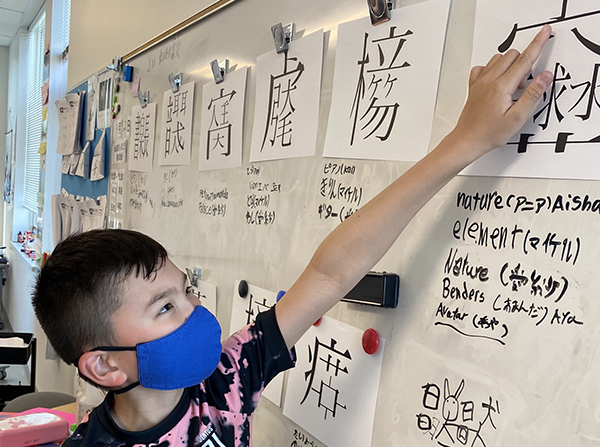Benefits of Language Immersion


by SARAH LOEPP AND KATHARINE SIMONS, INTERNATIONAL SCHOOL OF PORTLAND
Language immersion education is a popular option among Portland families, and is offered by preschools, and independent and public schools throughout the area. Since it is much easier to learn a new language while young, many parents are curious about what such programs are about, and what this could mean for their child. The social
benefits of learning a new language are well-known: bilingualism increases one’s awareness of the world around them, breaks down common barriers in travel, and enhances future personal and professional opportunities. But the value of language immersion education – taught in an intensive, supportive environment – goes well beyond this.
Research on language immersion and bilingualism (or multilingualism) has grown tremendously in recent decades, buoyed by increased interest in the topic and ever improving technology like MRIs, and produced a number of consistent findings:
Decoding skills: Language immersion students are constantly developing decoding skills in their second language— searching for clues to bridge the gaps between what they know and new vocabulary, sentence structure, and linguistic concepts. All this work not only allows for new language acquisition, but strengthens their decoding skills in their native language. They understand grammar rules, syntax, and other mechanics of language in a different way than monolingual students.
Metalinquistic awareness: Metalinguistic awareness is the way in which the brain thinks about how language functions. Metalinguistic awareness also heightens student’s ability to learn more languages later on.
Executive function: There are myriad cognitive benefits to language immersion, many of which relate to the concept of executive function, or cognitive processes tied to flexible thinking, memory, and the ability to focus on a task. These skills are also linked to improved problem solving, pattern recognition, and reasoning.
Cognitive flexibility: The brain of someone learning and communicating in multiple languages must continually
make decisions about which language to use, and how to categorize the sounds around them as belonging to one language or another. This process – known as language switching – requires cognitive flexibility as the brain has to
constantly identify what information is relevant and ignore distractions–a skill that transfers to all areas of learning and life in the schooling years and beyond.
Social and Emotional Development: Learning social cues is a vital, ongoing process at this age, and those navigating multiple languages are particularly attuned to these challenges. Students immersed in multiple languages become skilled at recognizing nuances and subtleties in language and expression; such distinction is necessary to
appropriately interact with their surroundings.
Global mindset: Studies have also shown that children thoroughly exposed to more than one language
are better at understanding other people’s perspectives, and more likely to be empathetic. They understand
that the cultural and linguistic “norm” in their home is likely different from that at school, and that people around
the world also have very different backgrounds and points of view. This global mindset the students share lends itself to new ways of conceptualizing one’s self and others.
Biculturalism: Language immersion is as much about bilingualism as it is biculturalism. Since our founding over
30 years ago, the International School of Portland has encouraged our teachers– all native speakers–to share their culture with their students. There are a rich variety of backgrounds and experiences just within a single language track. Moreover, we are proud to be one of only two schools in the United States that includes three language programs, and that diversity allows for students to have an even greater sense of international perspective.
We encourage you to learn more about language immersion education for your child!

